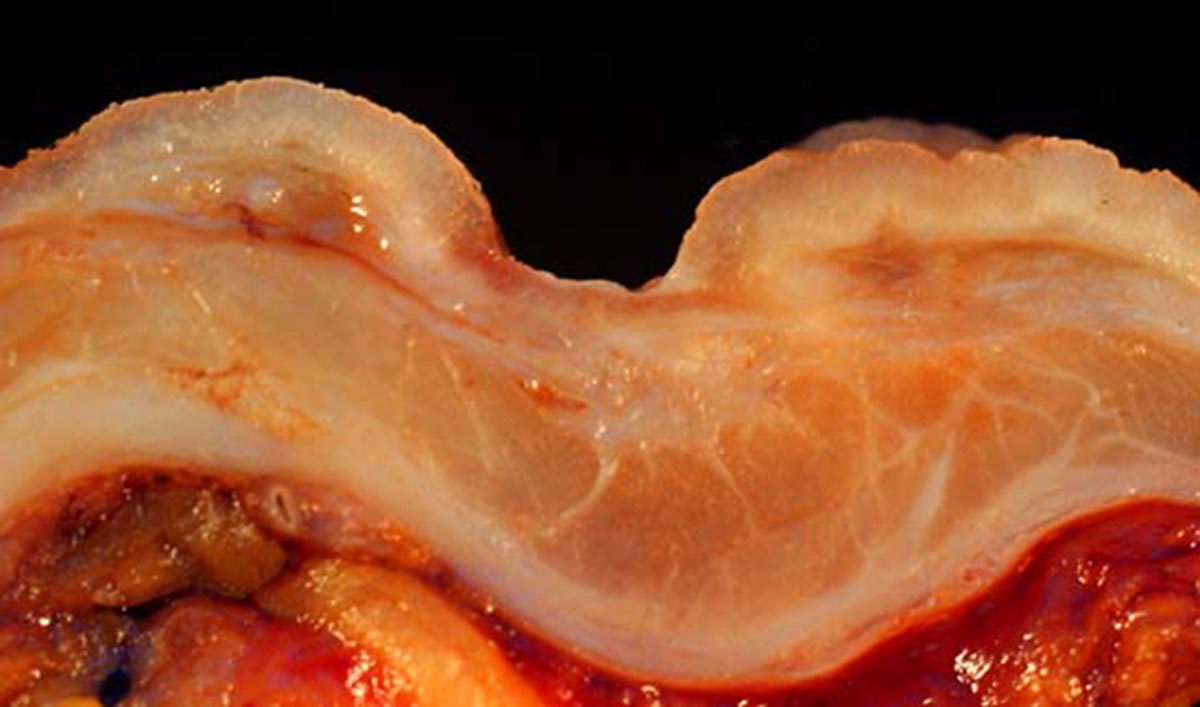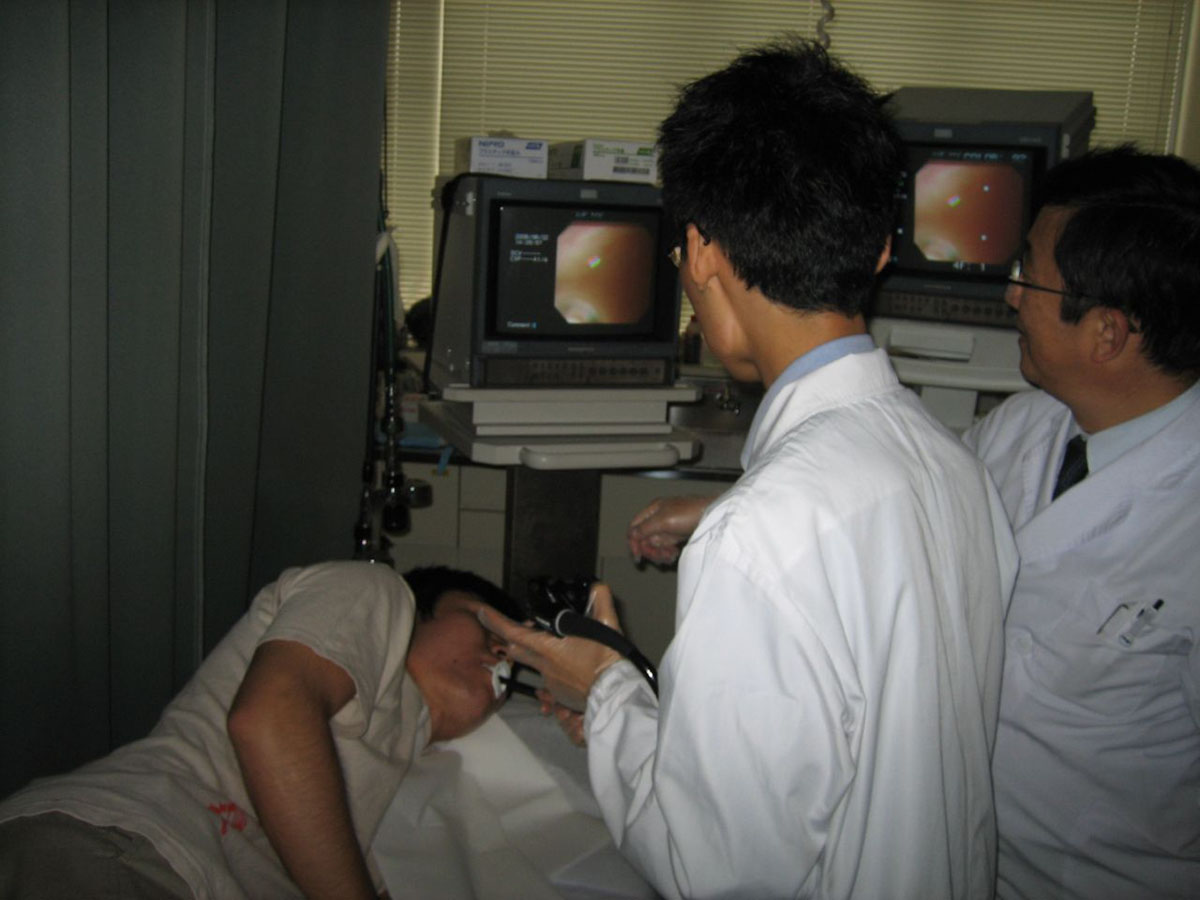A peptic ulcer is an erosion of the inner wall of the stomach or duodenum, the first part of the small intestine. Peptic ulcers occur when the acid inside your stomach injures its inner lining and ultimately creates a sore.
Peptic ulcer disease (PUD) is classified according to its location. Ulcers present in the stomach are called gastric ulcers and those present in the duodenum are called duodenal ulcers. An ulcer in the esophagus is called an esophageal ulcer.

Causes Of Peptic Ulcers
The stomach normally produces hydrochloric acid to kill germs and digest the food. This same acid is responsible for the injury to the stomach wall seen in peptic ulcer disease. So, what’s changed in a PUD patient that the same acid that's normally essential to normal digestion starts making a hole in the stomach wall?
A Helicobacter Pylori infection in the stomch is the most common cause of peptic ulcer. H Pylori bacteria are normally present in the stomach of roughly 25 percent of the population, but they do not cause ulceration in all of them. In some people, this bacterium starts an inflammation of the stomach wall (gastritis), which then causes irritation and ultimately leads to ulcer formation.
Regular use of NSAIDs like Aspirin, ibuprofen, naproxen, Meloxicam, and diclofenac is a common cause of peptic ulcers in developed countries. Frequent use of these drugs reduces the secretion of protective chemicals (prostaglandins) inside the stomach wall and makes it more susceptible to acidic damage.
There are some other factors that increase the risk of peptic ulcer disease.
- Smoking cigarettes or chewing tobacco.
- Increased intake of alcohol.
- Genetics is also a risk factor because a number of people with PUD have a close relative with the same problem.
- Mental stress is believed to cause peptic ulcers but there is no significant evidence.
- A rare condition called Zollinger-Ellison syndrome increases stomach acid secretion and leads to ulcers.
Symptoms Of Peptic Ulcer Disease
Upper abdominal pain is the most common symptom of peptic ulcers. This pain is caused by the ulcer's contact with acid. The pain of a gastric ulcer is aggravated during meals, while the pain of duodenal ulcer is relieved during meals. Pain is usually burning in nature and is accompanied by mild nausea.
Peptic Ulcer Disease: Danger Signs
Most people self-treat this “burning pain” by using antacids or other medications. These do provide temporary relief but do not give a comprehensive treatment. If you have severe burning pain in your upper abdomen for a long time, you should always contact your healthcare provider for diagnosis and treatment. Call a doctor immediately if you experience the following symptoms:
- Severe vomiting that contains blood
- Blood in stools or black, tarry stools
- Severe sharp pain all over the abdomen
READ Helicobacter pylori: The Bacteria that Cause Ulcers
These symptoms mean that the ulcer has started bleeding. This complication can lead to significant blood loss. The ulcer may bore a hole throughout the wall of stomach (perforation) resulting in leakage of contents and infection (peritonitis). These complications are medical emergencies and you should seek immediate medical help.
Diagnosis and Treatment of Peptic Ulcer Disease
Peptic ulcer disease should not be taken lightly. It should be properly diagnosed and treated under medical supervision.
Most people self-diagnose it as “acidity” or heartburn and try to self-treat it with antacids or even NSAIDs.
This may relieve the symptoms for a short period but can lead to complications in the long run. Therefore, always consult a gastroenterologist for proper management.

How Is PUD Diagnosed?
Your symptomds and medical history will clue your doctor in to the possibility that you have a peptic ulcer. The doctor will then rule out some common causes. Tell your doctor if you are regularly taking NSAIDs for pain relief. The doctor will order some tests to confirm the diagnosis.You can expect to undergo some of the following diagostic tests.
Testing For H Pylori: Ulcers caused by H pylori infections are treated differently, so it’s important to detect the presence of H pylori in your stomach. Three tests may be used:
- Urea Breath Test: In this test, you will ingest a fluid containing radioactive urea. If H pylori are present in your stomach, they will convert the carbon of the urea into carbon dioxide, which will be detected in your exhaled air.
- Blood Test: Blood tests can detect the antibodies against H pylori in your blood.
- Stool Test: Testing your stool can detect the antigen of H pylori bacteria in your stool.
Endoscopy: During an endoscopy, the doctor will insert a long narrow tube with a camera down your throat in order to visualize your stomach and duodenum. Most ulcers can be seen easily. Endoscopy is also used to look for any bleeding points in the stomach and to take a biopsy from the ulcer. This biopsy will confirm the presence of H pylori.
Upper GI X-ray: This X-ray is usually taken after the patient drinks barium (barium Swallow). Barium coats the upper GI tract and ulcers can be detected on the X-ray.
Peptic Ulcer Disease Treatment
Treatment of peptic ulcers is directed at two things: eradicating H pylori from your stomach and decreasing acid production. During the course of your treatment, you may be prescribed some of the following medications:
- Proton Pump Inhibitors: These drugs reduce the acid production inside the stomach. Proton Pump Inhibitors are widely used now. Examples are Omeprazole, esomeprazole and pantoprazole
- Antibiotics for H. pylori: If the cause of your peptic ulcer is a H pylori infection, the treatment is directed towards eradication of this bacterium. Usually, a three-drug regimen is used with at least two antibiotics and a Proton Pump Inhibitor.
- H2 Blockers: These drugs are also effective in reducing the stomach acid production. Examples include cimetidine, ranitidine and famotidine.
- Medications that protect the stomach wall: Bismuth subsalicylate (Pepto-Bismol) and sucralfate directly protect the stomach wall from acidic damage. Misoprostol releases protective chemicals in the stomach. Antacids are also used to neutralize the acid.
Lifestyle Changes After Your Peptic Ulcer Disease Diagnosis
Switch your diet to healthy and fresh vegetables and vitamin rich foods. Avoid smoking, alcohol and even carbonated drinks. Stress may worsen the symptoms, so avoid stressful conditions. Stick to using the pain killers your doctor recommends; Acetaminophen (Paracetamol) may be the best option.
Even if the peptic ulcer is successfully treated, there is a good chance that it can happen again, so maintain a healthy lifestyle to avoid recurrence.
- Janet M. Torpy, MD, Writer
- Cassio Lynm, MA, Illustrator
- Robert M. Golub, MD, Editor
- JAMA. 2012
- 307(12):1329. doi:10.1001/jama.2012.184.
- By Ed Uthman, MD. [Public domain], via Wikimedia Commons
- By Ed Uthman, MD. [Public domain], via Wikimedia Commons
- Photo courtesy of Yuya Tamai via Flickr: www.flickr.com/photos/tamaiyuya/180619235


Your thoughts on this